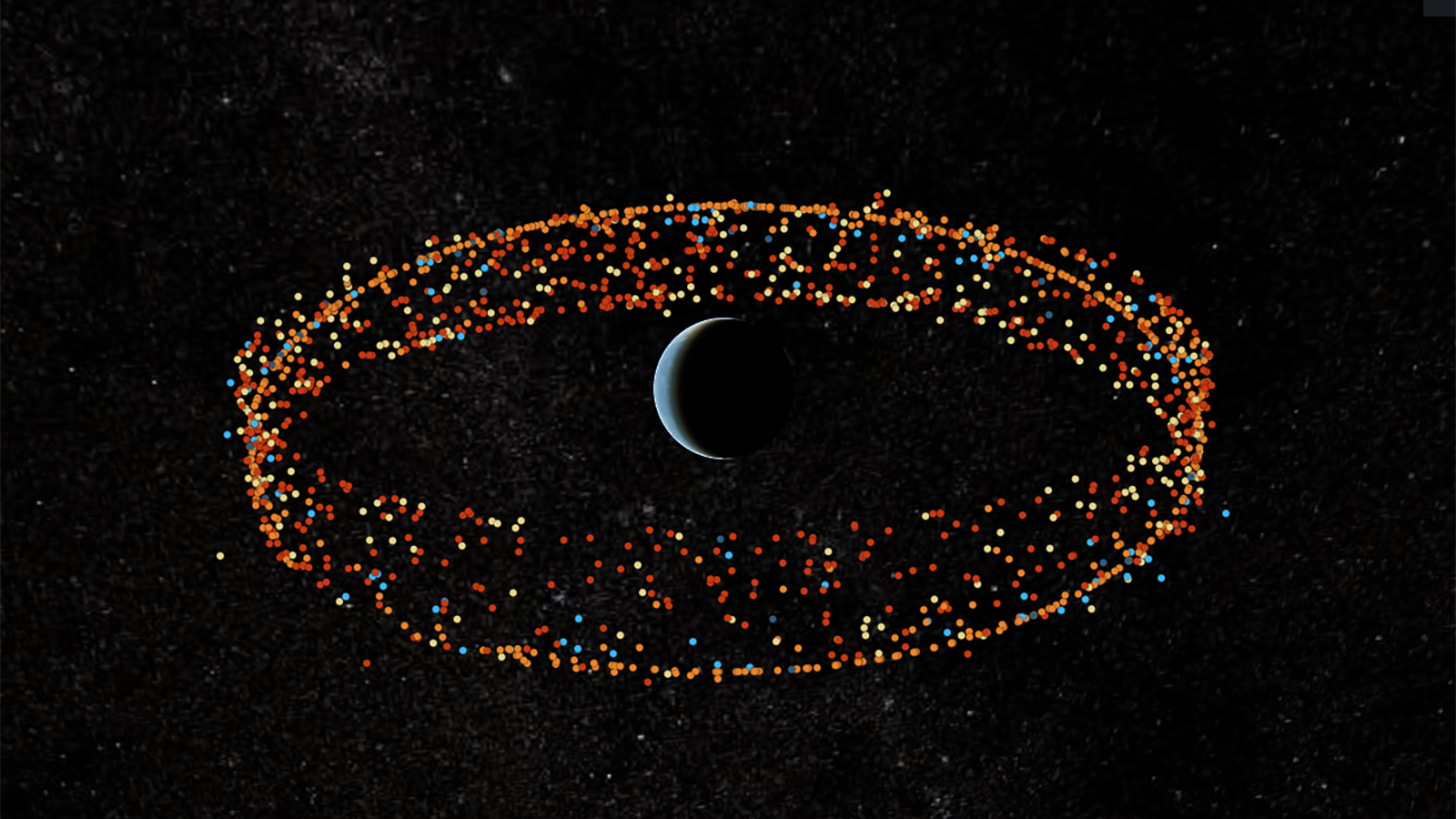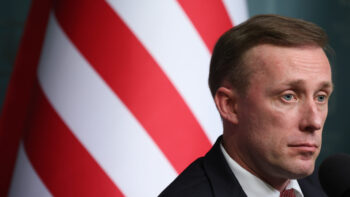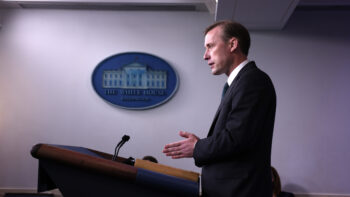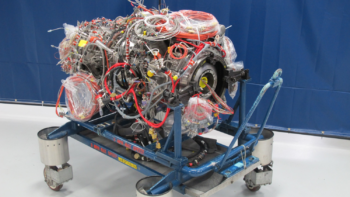
A screenshot of the Satellite Dashboard, created in a collaboration between the Secure World Foundation (SWF), the Center for Strategic and International Studies (CSIS), and the Department of Aerospace Engineering and Engineering Mechanics at the University of Texas at Austin. (screengrab)
WASHINGTON — The Federal Communications Commission will open a new “Space Bureau” as part of a reorganization designed to keep up with what FCC Chairwoman Jessica Rosenworcel called the new, commercial “Space Age.”
“This re-imagined bureau will support the United States leadership in the emerging space economy, promote long-term technical capacity to address satellite policies and improve our coordination with other agencies on these issues,” Rosenworcel told the audience at the National Press Club today.
Rosenworcel also announced a new International Affairs Office. The two new offices will be the result of splitting the work of the FCC’s current International Bureau.
“I think the FCC needs some remodeling,” she said. Current organizational structures, she explained, have “not kept pace” with the explosion of interest in commercial space, from low Earth orbit satellite constellations to new ways to manufacture and upgrade platforms, causing at times an “exponential” growth in space-related commercial applications before the FCC — with the agency receiving 64,000 licensing requests for new satellites over the last two years. The FCC regulates the use of radio frequency spectrum, and thus most commercial satellite operators (and all commercial satellite communications operators) must get its approval before launch.
“You can’t just keep doing things the old way and expect to be in the new,” Rosenworcel said.
In a statement, the FCC said that by “separating satellite policy from the ‘International Bureau,’ the agency acknowledges the role of satellite communications in advancing domestic communications policy and achieving U.S. broadband goals.” Meanwhile, the agency said the “stand-alone” International Affairs office “will allow relevant experts to focus specifically on matters of international communications regulation and licensing as we enter a new era of global communications policy.”
Rosenworcel said the reorganization was part of a broader push to modernize the agency’s operations, also including updating rules, “bulking” the FCC’s ranks and making more spectrum available to a wider variety of industry players.
The FCC, which is independent of the White House and other executive branch agencies, has been active when it comes to the rules for extra-terrestrial business — sometimes running slightly afoul of administration plans.
Just weeks ago the agency announced it would require that satellite operators subject to its regulations de-orbit spacecraft stationed in LEO within five years after they cease to operate. Meanwhile, NASA is leading an ongoing review of Orbital Debris Mitigation Standards and Procedures that govern the Pentagon and other agencies, and currently set the de-orbiting limit at 25 years.
The commission first proposed re-consideration of the 25-year rule back in April 2020, and at the end of September finalized a draft ruling to set the disposal deadline at five years.
“The new 5-year rule for deorbiting satellites will mean more accountability and less risk of costly collisions that increase debris,” the FCC said in a press release announcing the new order.
But Rosenworcel today said the agency’s recent moves won’t be its last.
“Stay tuned, there’s more to come,” she said.
Norway’s top officer on his ‘biggest challenge,’ next frigate and new NATO neighbors
Gen. Eirik Kristoffersen, Norway’s Chief of Defense, talks to Breaking Defense about his plans for spending on new frigates and subs, the challenges of upgrading Norway’s “digital backbone” and refilling the military’s stocks.



























